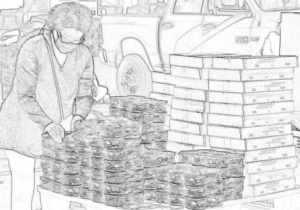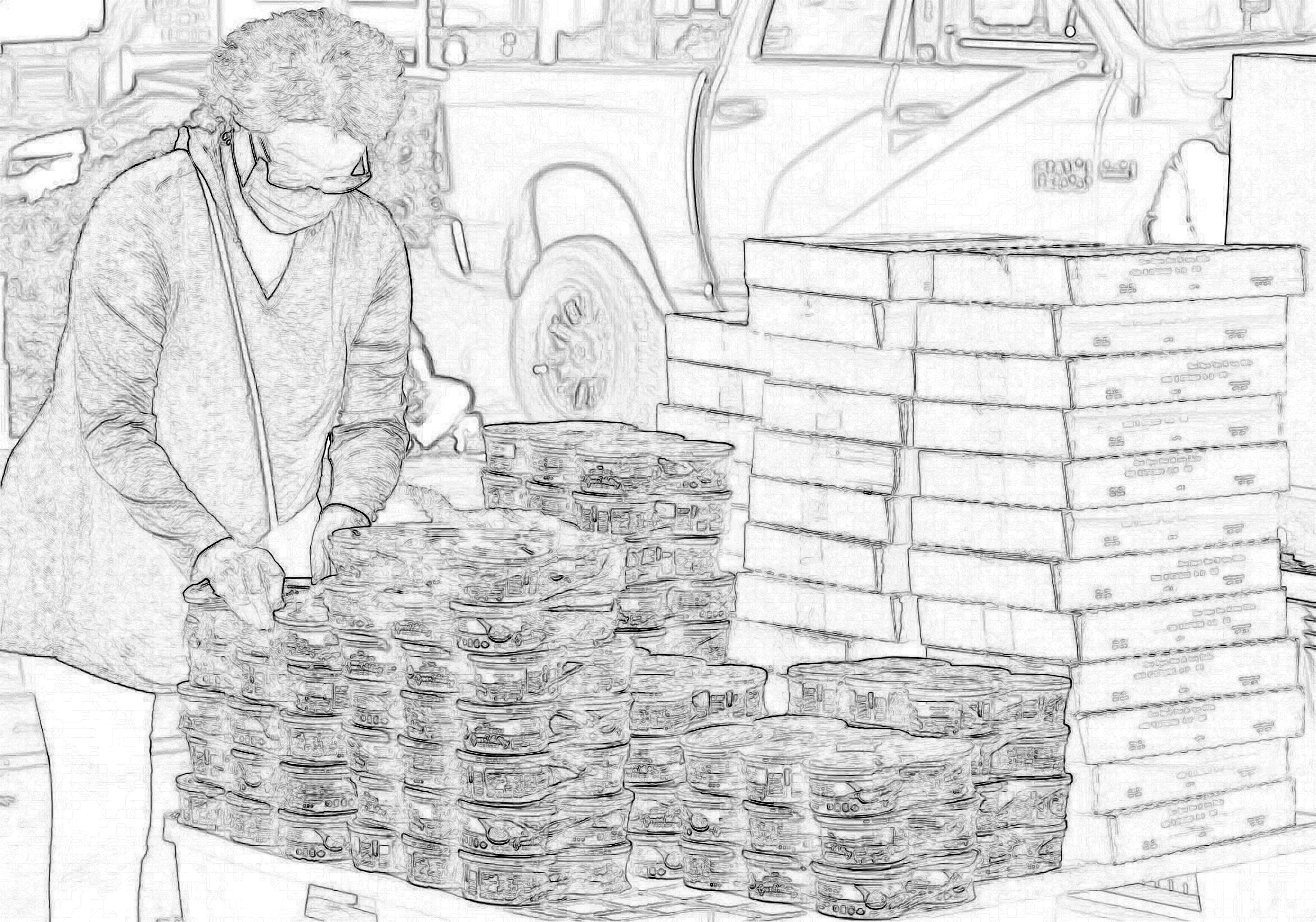
Homes, public spaces, schools, businesses, and grocery stores all lost power nearly two months ago when a swath of power outages blanketed the East Bay, Marin, Sonoma County and many other communities in the San Francisco Bay Area. When faced with the challenge of the power shut down, grocery stores in Mill Valley and other communities acted quickly and tried to help the larger community.
On a cold Sunday after many customers lost power, Clark Pomeroy, Store Team Leader at the Miller Avenue Whole Foods Market in Mill Valley, returned to his store, took inventory, and single-handedly began distributing food to the shelters in Petaluma and kitchens at the Fairgrounds.
The Miller Avenue Mill Valley Whole Foods had lost power on the previous day, Saturday the 26th, and didn’t have power again till Wednesday the 30th, four days with no power for refrigerators, freezers, and other appliances necessary to keep food safe for consumption. Pomeroy explains that “anything that only had a shelf life of a couple of days was never going to be able to be recovered.” He explained that “high-dollar” items like meat, seafood, and cheese products were prioritized and stored in the trucks.
These power outages, which PG&E call “Public Safety Power Shutoffs” or “PSPS,” were in response to the spreading Kincade wildfire in Sonoma county which burned almost 78 thousand acres, according to the California Department of Forestry and Fire Protection. PG&E feared that sparks from active power lines could ignite dry brush which, when combined with seasonal winds, would increase the fire hazards in the Bay Area.
The 2019 outages PSPS affected approximately 940,000 PG&E customers, according to PG&E, some of whom went without power for as long as a week. Such drastic measures to protect the Bay Area from fire hazards have the possibility to create stress and challenge in the community.
Pomeroy talked about a standard operating procedure for when the store loses power. “In this case, we had a plan in place with two tractor-trailers, one was for frozen product and one was for refrigerated products.” These trucks were parked on the street near the store, but there were still many products that Pomeroy and the other Whole Foods team members had not been able to get to their sister-store, the Whole Foods Market in Blithedale, or packed into the trucks. Pomeroy, however, stepped up and acted outside of standard procedure for the store, and this is where Pomeroy himself takes over.
Pomeroy distributed what was left in the store, which included meat, seafood, packaged salads, and cut fruit, all of which needed to be eaten in the coming days, as well as “hundreds and hundreds” of sausages. Pomeroy talked about the first day he distributed food when he loaded product into his personal car and took cut fruit and packaged salad mixes to the two shelters in Petaluma, the Lucchesi Community Center, and the Fairgrounds shelter.
Neither Pomeroy nor Mill Valley Whole Foods had preexisting relationships with these shelters, but Pomeroy mentions the shelters were grateful for the spontaneous influx of food. The second day, Pomeroy was dealing with large amounts of meat and seafood which needed to be cooked and eaten soon. Pomeroy’s wife went to the Fairgrounds shelter and talked with kitchen personnel there and arranged for Pomeroy to bring the meat up and load it into refrigerated trucks.
Pomeroy’s spontaneity and human kindness were not the only examples of their kind during the power outages. “Any products that we knew we couldn’t withhold we distributed to the community,” said Irene Schwab, store manager at the Good Earth Foods grocery store and deli in Mill Valley. Starting at 9:00 a.m. on Sunday, October 26th, Good Earth Foods put out an email call to all their neighbors without power and essentially gave food away at the storefront. “At first it was kind of crazy because people came, and there were a few homeless people… with the ice cream, everyone was going crazy on that stuff,” Schwab remarks, as she recounts the energy in the lot while they were distributing food.
Schwab also spoke on how news of the makeshift giveaway spread quickly by word of mouth. Neighbors would email neighbors, who would in turn email other neighbors and so on. The site of the give-away, the Good Earth Foods parking lot, was a calm and civil space where the community members were taking only what they needed to be supplied by a locally operated grocery store in Mill Valley.
On the west side of the 101, the Blithedale While Foods could stay open, powered by a generator. This store (and the Safeway on the east side of the freeway), fed the community. Each morning there were long lines of people cued up to buy coffee and to buy prepared food from the stores’ hot tables.
The examples that these two acts of human decency set provide a framework for how communities as a whole might come together during an emergency that affects us all. In focusing on pooling resources, community members can work together to provide what is needed for those who need it. If the PG&E continues the PSPS trend next fire season, perhaps communities can turn to precedents like this to bring the community together in solidarity to face human-induced emergencies like these.







